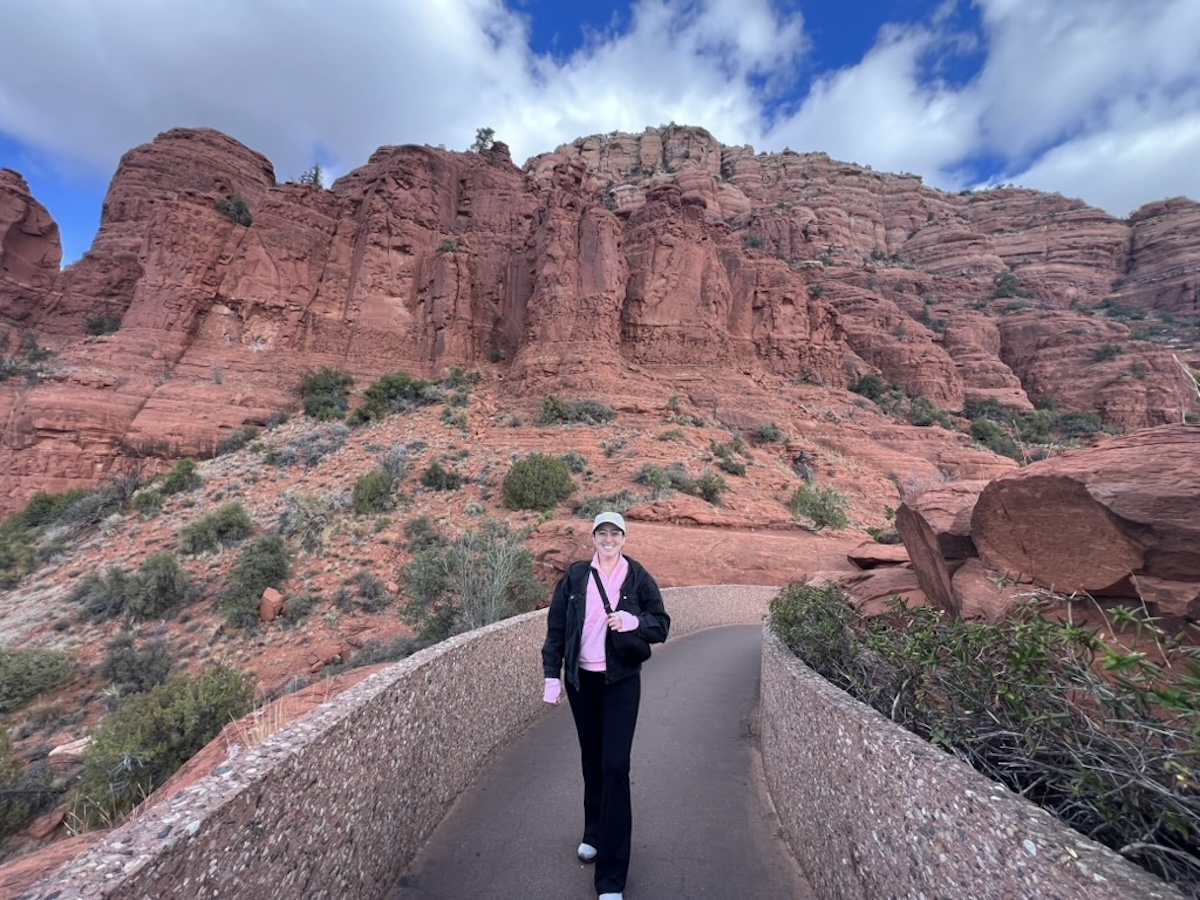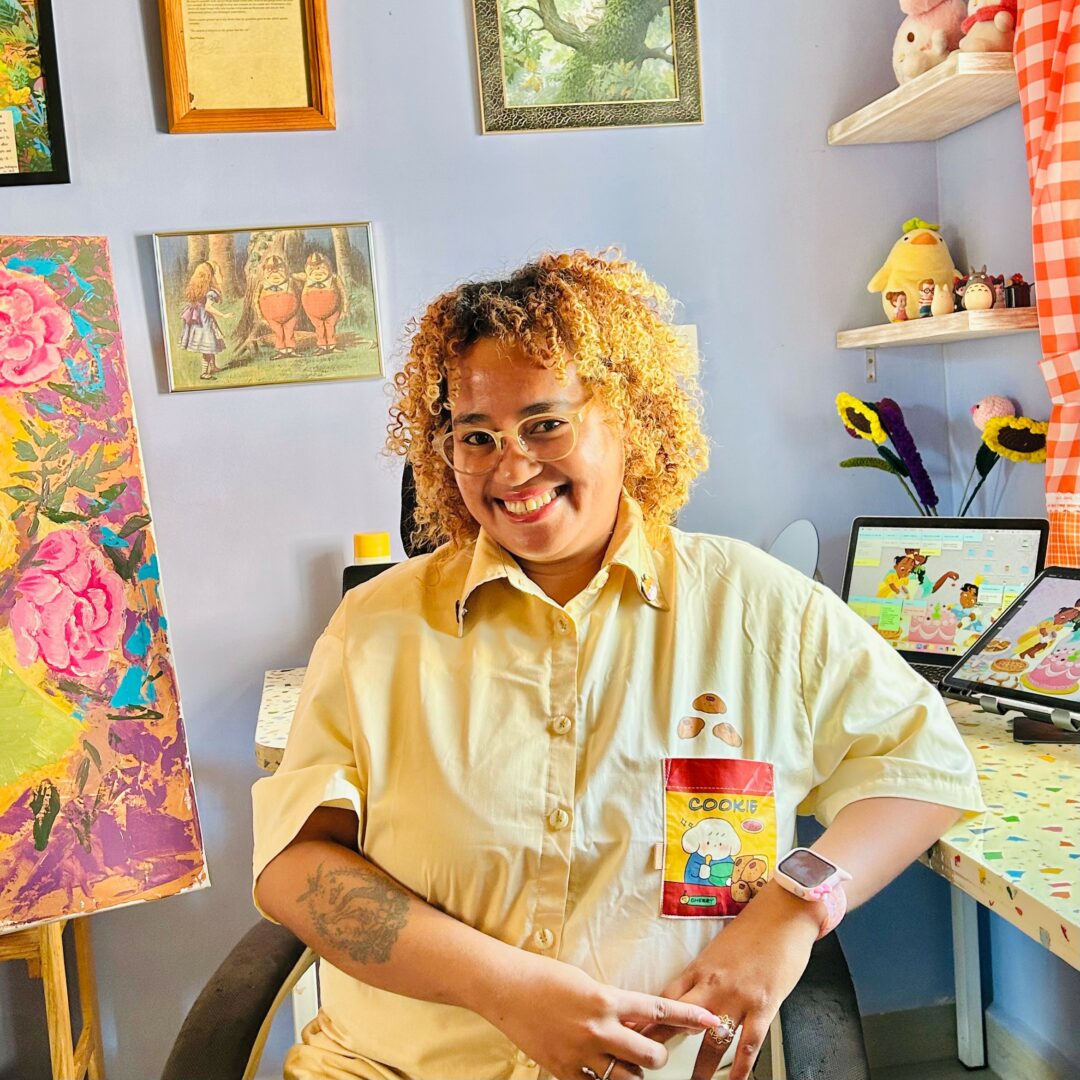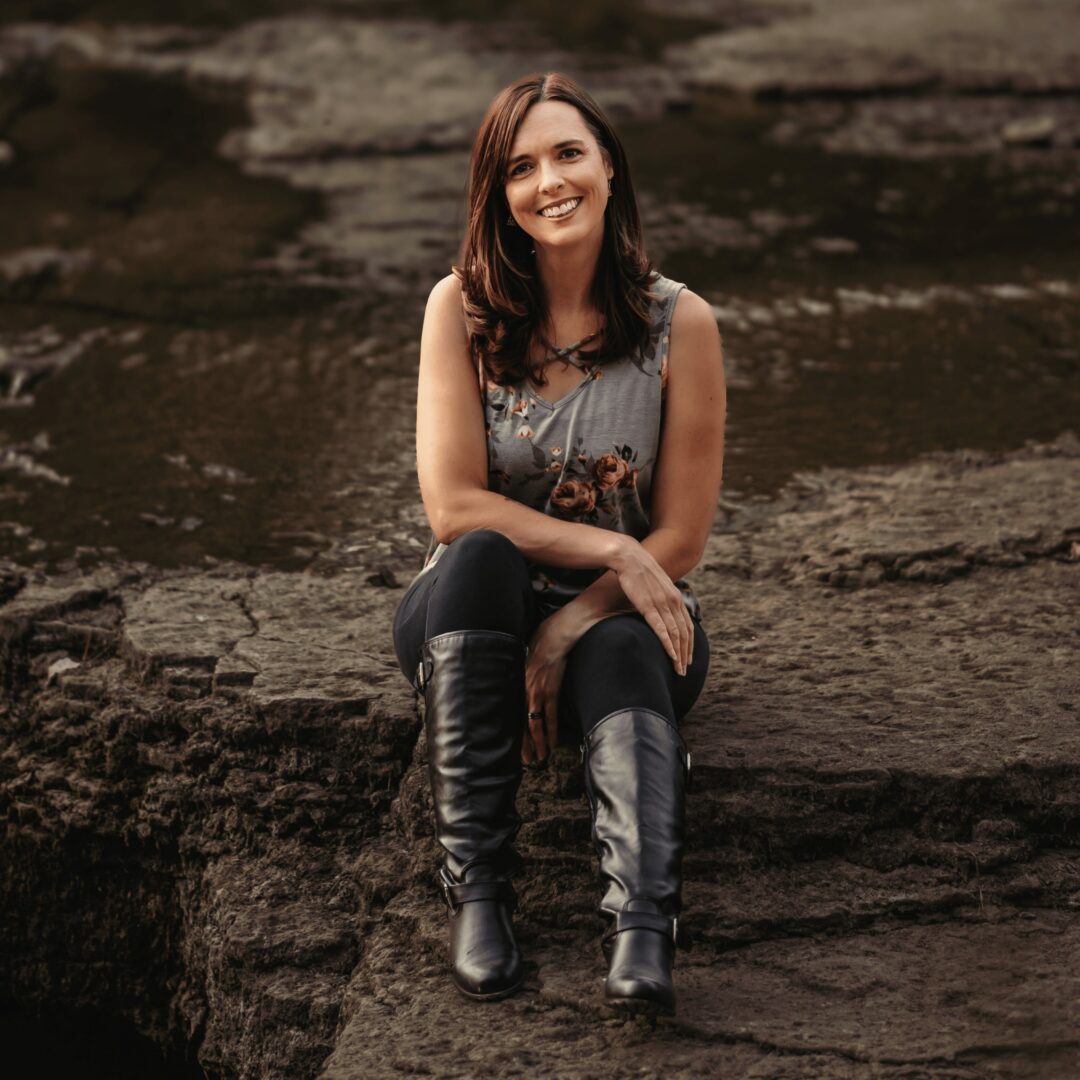We were lucky to catch up with Gokce Gizer-Clover recently and have shared our conversation below.
Hi Gokce, appreciate you sitting with us today to share your wisdom with our readers. So, let’s start with resilience – where do you get your resilience from?
I grew up in Adana, Turkey, in a big, entrepreneurial family. I was deeply inspired by my father and grandfather, who built a retail business, initially selling fabric by cycling to the next town and eventually expanding to over 20 department stores across Turkey since 1976. Their stories of overcoming obstacles and expanding beyond their immediate circumstances taught me to view setbacks not as barriers but as opportunities to learn, grow, and pave the way for others. Although I’m not in retail (sorry dad), I’d like to believe I represent them by always pushing boundaries and expanding my world, embodying their spirit in my own journey.
My dad was very intentional about raising me and my older brother as equals so, with the best of intentions, he raised me as he would a boy—independent and fearless. I remember how my mom would get scared whenever he took me on semi-dangerous cycling and cave diving adventures, and taught me to drive at 11. Before I even turned 10, he’d bring me to work during the summer, where I ran up and down the store, carrying customers’ purchases from the kids department to the cash register. As a result of all this experiences, I always believed I could do anything, anywhere in the world, and always dreamed of giving it a try to see what I’m capable of.
In a way, my blissful ignorance made me courageous, leading me to make bold decisions such as leaving the only home I know, disappointing my parents at first by not staying in the family business, or getting married in my 20s.
When I moved to New York at 26, I was unaware of how out of place I was, not getting the local dynamics, the significance of schools or the preconceptions about me as a Turkish immigrant, a young woman from a small town who went to a university in Istanbul they never heard of and no network in the US. Yet, thanks to the way I was raised, I never saw any limits for myself, and kept eagerly engaging with people at events and workshops, offering and seeking help, and absorbing all the information and knowledge I could. Then I started getting seemingly small opportunities like an internship at ERA (Entrepreneurs Roundtable Accelerator) that changed my life and introduced me to the startup world.
From a young age, I was inspired and encouraged to work with enthusiasm, embrace resilience, resourcefulness, and a growth mindset, always seeking new, uncharted territories to explore. Funny enough, I had my eyes on the corporate ladder until I moved to New York, where I guess the entrepreneurial seeds planted in my childhood must have found the right environment to flourish.
I believe in myself because others have instilled that belief in me and have encouraged and empowered me to create my own path. I believe that even if things go terribly wrong, I can shift my focus to what is still within my control and remain curious about the lessons in each experience to grow from them. I believe that things will work out as they are supposed to, and one day I’ll look back on even the worst experiences with gratitude because they led me to where I am—a life beyond my dreams.
Thanks, so before we move on maybe you can share a bit more about yourself?
As a serial entrepreneur, coach, investor, and advisor in the tech ecosystem, I have supported hundreds of tech founders from ideation and fundraising to scaling. I love working with founders because I believe they are creating the organizations that shape every aspect of our lives—how we work, live, learn, play, and engage with each other.
Work is no longer just a place we go from 9 to 5 to make money; it’s where we find meaning, belonging, connection, and purpose for our capabilities and passions. I believe we all deserve to work in organizations where we feel like we are thriving.
That’s why I want to ensure that founders shaping these organizations are intentional about their responsibility and the influence they have on all aspects of our lives.
For over a decade, I’ve been involved in designing programs and building communities, currently in London and previously in New York. Through this experience, I’ve observed recurring patterns among companies that go bust and founders who go on to build impactful companies that scale sustainably. Despite their brilliance in product development, many founders struggle to lead and grow their businesses beyond the initial products. This growth requires different skills and a shift in mindset, leading to a failure rate of over 65% up to and beyond Series A, with founders often experiencing burnout.
To tackle these challenges and support founders as they navigate the growing pains of scaling beyond their initial teams and products, I founded Beyond42. The different skills and mindset required for this growth phase are what we call Leadership Resilience. We have built a comprehensive framework tailored for tech founders, encompassing four core pillars: Self, Attention, People, and Outlook.
We believe that with the right resources, a support system of experts and coaches, and a community of peers, founders can develop the leadership resilience needed to lead rapidly growing teams, build lasting companies, and thrive. At Beyond42, we’re creating programs, sharing resources, and shining a light on inspiring stories to support founders. In addition to startup development and strategy, we incorporate tools and resources from fields such as leadership, team and organizational development, neuroscience, yoga philosophy, and behavioral psychology.
We just launched The Beyond42 Podcast, a series exploring the uncharted territories of success and leadership beyond the product. We engage in candid conversations with founders, investors, and experts to delve into how “success” is defined, measured, and achieved in the tech ecosystem and beyond. We aim to change the narrative that glorifies relentless work and constant pursuit of achievement in the startup world, often at the expense of our well-being, relationships, and passions. Through stories, insights, and resources, we want to show that a purpose-driven approach, self-care, and strong relationships are the cornerstones of thriving.
Looking back, what do you think were the three qualities, skills, or areas of knowledge that were most impactful in your journey? What advice do you have for folks who are early in their journey in terms of how they can best develop or improve on these?
1. Clarity of vision. Having clarity of vision about the kind of life I wanted to live and what mattered most to me has been crucial. Ever since I was a kid, I aspired to live abroad, to explore the world beyond my immediate surroundings, and to push myself to grow beyond what I thought I was capable of or what was planned out for me. That narrow path never felt right for me. I loved the process of learning, where I could deconstruct a concept, understand its fundamentals, then reconstruct and apply it. I also enjoyed sharing what I learned with others to help them understand, learn, and grow. At one point, I noticed that what got me to Paris then New York was that clarity of vision I had for so long and then I became even more intentional about it to stay on a path that felt right for me. I have practices of visualizing and journaling the kind of life, how I want to spend my days, the people I want to be surrounded by, how I want to feel, the value I create and how I contribute to this world. Be intentional about your path and vision for your life. Do introspective work and be explicit about your values and how you live by them.
2. Being a giver. I have always had a giver mentality—I like to help and offer support to others. Looking back, I realized that the most pivotal opportunities in my life came as a result of one question I asked others: “How can I help you?” Whenever I met a person or group working on something that moved, inspired, or excited me, and I felt there was something I could do to support them and take it to the next level, I would simply ask how I could help. I did this genuinely because I believed in what they were doing and thought I could create value for them and contribute to their purpose. Shift your mindset from having expectations of others to being intentional about how you can help and create value for them. Focus on being a solution to their challenges. This will unlock far more for you than you can imagine.
3. Striving for excellence. This is not about trying to make everything perfect. My focus is on putting my best effort into whatever I’m working on, big or small, whether or not I receive acknowledgment, credit, or compensation for the outcome. All those things are out of my control, and the only thing I can control is what I put in. At the end of the day, I’m only responsible to myself for the quality of the work I deliver.
I’m not saying you should do things for free or not get credit. There will be times when you agree to do something for free or work in the background, but the quality of your work should be consistent regardless. No effort goes to waste; it only prepares you for that great opportunity. Striving for excellence will only make you better and better.
Who is your ideal client or what sort of characteristics would make someone an ideal client for you?
Our ideal clients are founders and leaders of rapidly growing tech companies. They have a validated product or set of products, initial funding, and the resources to build a talented team. They are at a critical stage in their journey where their role is shifting from being builders and sellers of products to becoming leaders of a team and drivers of a vision.
At this stage, founders must shift from being hands-on contributors to becoming hands-off leaders and coaches who empower others to deliver on the vision. Additionally, the “hustle no matter what” approach, at the expense of well-being, relationships, and things they love, will ultimately hurt them. The long-term stress leads to physical and mental issues, such as a weakened immune system, mood disorders, and cognitive decline.
To perform at their best, founders must take care of themselves, build a support system, and have a clear vision that keeps them on their path even when faced with uncertainty.
We aim to help founders and leaders who feel overwhelmed, are unsure how to navigate this new territory of leading a team and managing stakeholders, or have lost their sense of clarity, purpose, and motivation.
Contact Info:
- Website: https://www.beyond42.co/
- Linkedin: https://www.linkedin.com/in/gokcegizer/
- Youtube: https://www.youtube.com/playlist?list=PLDuF55baiND7nkd4_9IfDTG_3ErTCSaqr
- Other: https://beyond42.substack.com/







Image Credits
Brenna Duncan and Nicole Engelmann




